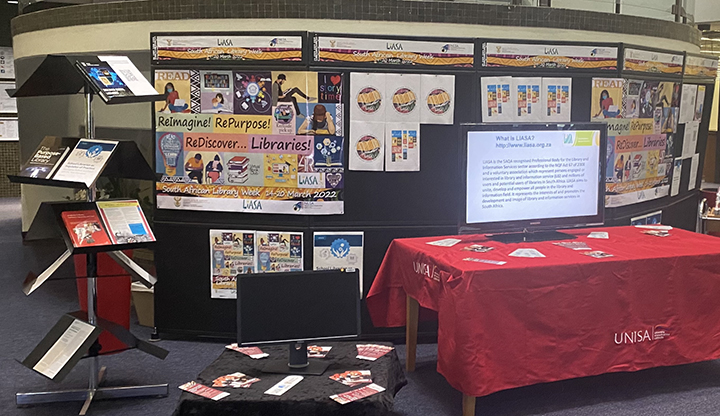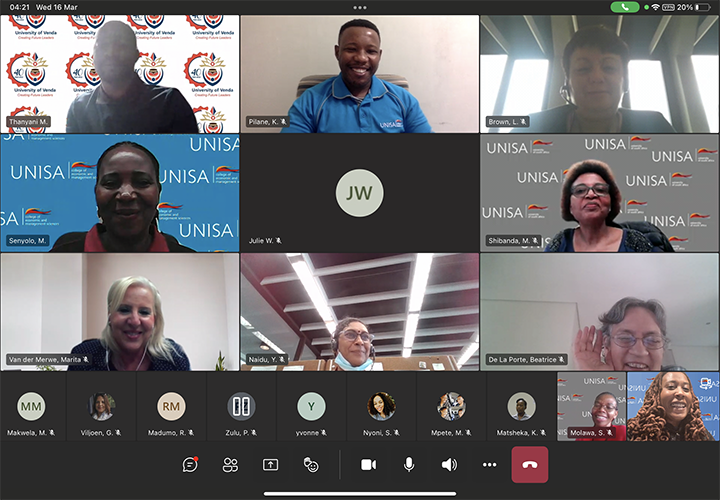News & Events
Reimagining, rediscovering and repurposing libraries
The months of March and April have been busy ones for Unisa’s libraries. 14 to 20 March was South African Library Week (SALW) with the theme “ReImagine! RePurpose! ReDiscover … Libraries!”
Library Week festivities were extended with a host of activities throughout March and April. Unisa libraries across the country hosted a series of events that featured Library and Information Science (LIS) specialists as well as other interactive student-engaged sessions.
The aim of SALW is to bring Unisa’s libraries closer to our communities, to renew the university’s commitment to students’ learning and research needs, as well as to inspire new and existing library users by making them aware of our vast menu of services and resources.

One of the many Library Week exhibitions
Events included a session hosted by the Muckleneuk campus library with the focus on the role of library technology and other 4IR technologies in the advancement of service improvement. Thanyani Mpeiwa, a Systems Librarian at the University of Venda and a former Web Technology Applications Specialist at the Unisa Library, presented a talk entitled “Keeping our services alive, wave after wave”, focusing on the impact of COVID-19 on the future of the LIS industry as well as how to galvanise data for library users. “How can libraries be catalysts in the investigation and implementation of new software and systems?” probed Mpeiwa, who gave a comprehensive address on libraries’ roles as high-tech and administrative support hubs to students and staff.
Other similarly engaging events were hosted at the Gauteng Regional Hub with a keynote address by Professor Lorette Jacobs from the Department of Library and Information Services, and the North Eastern Region where Dr M Setoaba presented a motivational keynote, followed by an address by members of the RSRC.

Joy and enthusiasm were evident at the Muckleneuk campus event, which was attended by students, LIS practitioners and library management
The Cape Town branch library hosted a library orientation (a session designed to navigate students on how to find library material easily), and the Midlands regional library hosted an awareness session on plagiarism and academic integrity headlined by Professor Pierre Biccard (College of Education) and Unisan Ndhuma Shivambu. Unisa branch libraries will continue to host speakers, authors and other experts throughout the year on library-related and literary events, including the upcoming World Book and Copyright Day celebrations in April.
* By Natalia Molebatsi, Communication and Marketing Specialist, Unisa Library
Publish date: 2022/04/19
